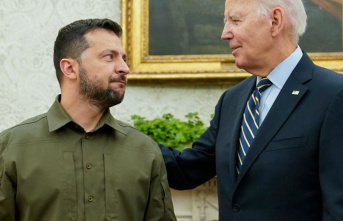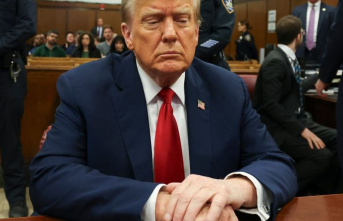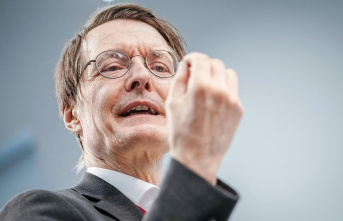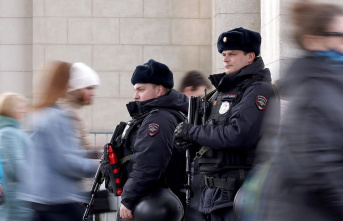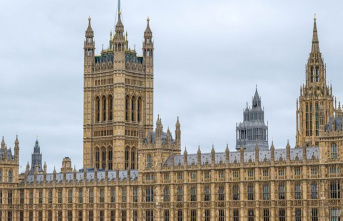Trade unions and employers have postponed their collective bargaining for the federal and local public services without any result. In the coming weeks, citizens must expect individual protest actions by employees, as Verdi boss Frank Werneke announced after three hours of consultations in Potsdam. "Accompaniment music" will now start, said Ulrich Silberbach, head of the civil servants' association dbb.
Verdi and the civil servants' association dbb are demanding 10.5 percent more income, but at least 500 euros more for the approximately 2.5 million employees. The term should be 12 months.
Federal Interior Minister Nancy Faeser (SPD) spoke of "a good and constructive start". It is true that the employees are very stressed by the Corona crisis and the consequences of the Russian war in Ukraine. At the same time, the budget situation, especially in the municipalities, is very tight. We are now working together to find "a viable solution".
The Association of Municipal Employers' Associations (VKA) was also optimistic despite the differences. VKA President Karin Welge expects, in her own words, "that at the end of the day there will be a good compromise". Werneke said: "I'm counting on the employers having recognized the signs of the times and making a good offer."
Dispute over inflation and minimum amount
Because of the current "hard social imbalance" for people with low incomes, the minimum amount is the "most important requirement" for Werneke. VKA President Karin Weigel, on the other hand, strictly opposed "a disproportionate strengthening of the lower professional groups". It is already very difficult to find top performers today. "We advocate a long term, and we advocate a sense of proportion and prudence."
The sticking point on the first day of negotiations was inflation. "We are then also clearly apart, because employers do not recognize the need to compensate for the increased prices," said Werneke. There is an "absolute dissent" here.
Werneke pointed out that prices have risen by 11 percent since the most recent collective bargaining agreement in 2020, but income has only risen by between 3 and 4 percent. "We have to catch up on that alone in this collective bargaining round, and prices continue to rise." VKA negotiator Welge rejected the presentation of real wage losses as "march". "In the last ten years, real wage gains are still being made for employees."
With an increase of 7.9 percent, the population in Germany experienced the strongest price shock since the founding of the Federal Republic. At the end of this year, Federal Economics Minister Robert Habeck (Greens) is now hoping for an inflation rate of less than 5 percent.
Possible warning strikes
According to Werneke, the extent to which major industrial action would be necessary depends on the course of the second hearing on February 22nd and 23rd. The negotiations concern, among other things, educators, nurses, bus drivers, geriatric nurses, firefighters, garbage workers and a number of other professions. Outstanding payments could have a correspondingly strong impact.
Welge, who is also the mayor of Gelsenkirchen, was unimpressed: "It's the ritual of the unions, which of course always mobilize on the street." In the last collective bargaining round for the federal and local governments in 2020, clinics, daycare centers, local transport and savings banks were affected by strikes and protests.
In the coming weeks, Verdi also wants to hand over the signatures of more than 335,000 employees to the mayors. This should support the claims.
High additional costs
According to the VKA, the costs for the required wage increase for municipal employers would amount to around 15.4 billion euros. According to the Ministry of the Interior, this would result in additional costs of around 1.4 billion euros per year for the federal government.
The trade unions and municipal employers agree that the employees have been given enormous additional tasks as a result of constant new reforms by the federal legislature. Silberbach therefore called for better financial resources for the municipalities. "Because it can't be that the federal government constantly enacts new laws (...), but the corresponding staff is not available in the municipalities," said the dbb boss, with a view to the all-day entitlement for childcare and the citizen's income.
VKA President Welge had already pointed out the reforms that municipal employees would have to implement. In order to attract more employees, trade unionist Silberbach also needs more attractive working conditions and higher pay.


